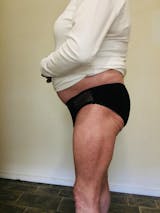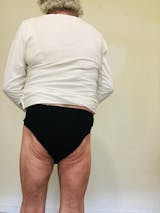ZeRRRo
For us at Zero Waste Co., living sustainably is very important and these 3Rs matter for us the most: Reuse, Reduce, and Recycle (zeRRRo!). These three verbs are very actionable that we can come up with a lot of things to do so we can reuse, reduce, and recycle waste and other stuff that we have to decrease our carbon footprint on the planet. If you are not yet doing the 3Rs, here’s our list to start you off:
REUSE
As much as possible, when buying items, consider reusable ones. Single-use items or products add to the waste of the world. And that’s not good for the environment. Do your best to choose plastic free reusables or biodegradable ones like durable and washable utensils and cutlery, cloth napkins and dishcloths, and refillable items like pitchers, bottles, etc.
For single-use items, buy or take only what you need. Use rechargeable batteries. Maintain and repair durable items—your personal computer can be upgraded, so why buy a new one? Keeping what we have right now saves us money. And if you’re buying big appliances, find out which of them are the most energy-efficient and durable.
Reuse bags, jars, and other containers. Don’t throw them away. You can bring the bags when you go to the grocery store. Reuse other jars or containers that used to have powdered products. When you go to a coffee shop, bring your own mug or bottle with you.
REDUCE
Reusing items reduces waste. But we can take the Reduce Waste activities a notch higher by not buying items or products that are wrapped in plastic or packaged excessively in boxes and bags. Who here hasn’t bought a small item packed in a huge box? That’s such a waste!
To help reduce waste, buy in bulk. Soap, pet food, toilet paper… many products can now be bought in bulk. Individually wrapped products only add to the waste we generate. And that’s bad for the environment. Buy items in refillable packages, too.
Reduce toxic waste by choosing to buy or use non-hazardous materials, biodegradable, and plastic free products. For example, there are insecticides that are water-based and eco friendly. Make sure that hazardous waste materials that you have (such as motor oil) are disposed of properly.
RECYCLE
You wouldn’t do this yourself, of course. What you can do is follow these three steps before sending all the stuff to your recycling centres or having them taken away by the rubbish collectors.
-
Identify the recyclables. Cardboard and paper such as flattened boxes, newspapers, magazines, junk mail, and office paper. Metal cans for food and beverage. Plastic bottles and liquid containers with their caps and lids on. Better if you can check what can be recycled from your local council.
-
Ensure your recyclables are empty, clean, and dry. Cardboard and paper can no longer be recycled if they get contaminated by a wet and dirty content from a plastic bottle or container.
-
Don’t put your recyclables in a bag. Recyclables in plastic bags cannot be sorted in the facility as they can get caught in and damage the equipment. It also poses a health and safety risk to the staff as the contents of the bag are not visible and may contain sharp objects.
When your recyclables aren’t bagged, they can easily be sorted and processed, and more items can be recycled into new products. Also, food waste is recyclable and can be turned into compostable material for your flower bed, garden, yard, etc.



















